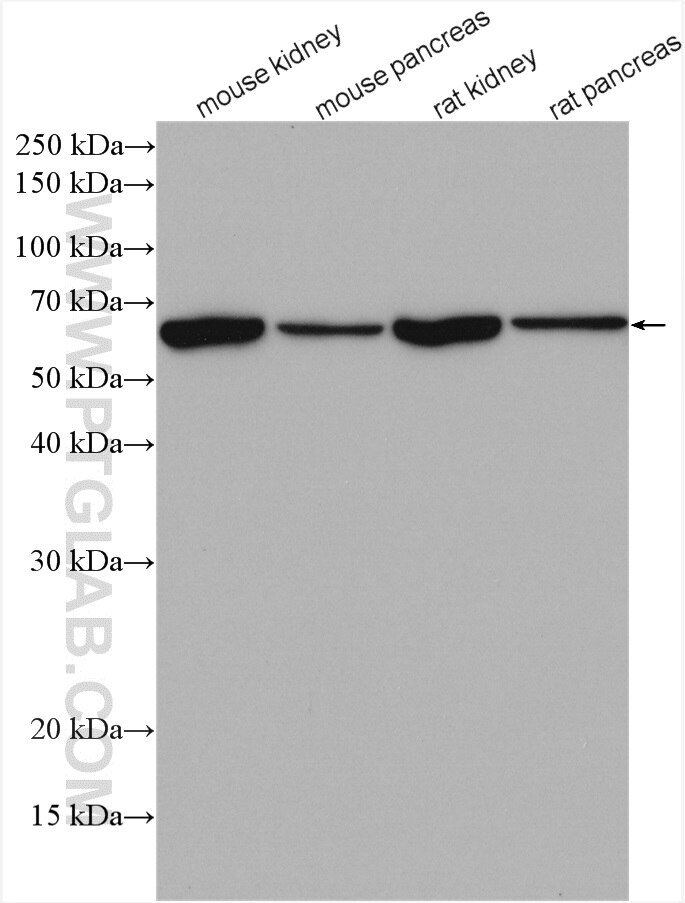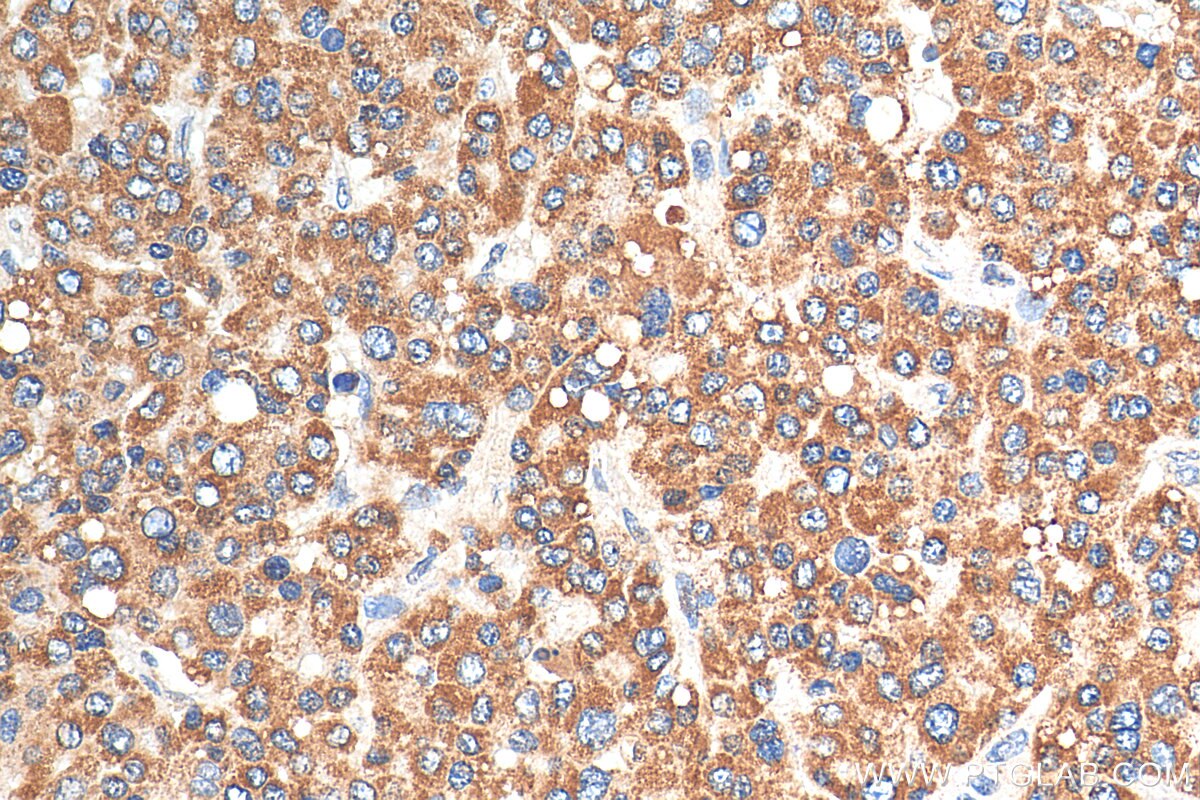Anticorps Polyclonal de lapin anti-KLKB1
KLKB1 Polyclonal Antibody for IHC, WB, ELISA
Hôte / Isotype
Lapin / IgG
Réactivité testée
Humain, rat, souris
Applications
WB, IHC, ELISA
Conjugaison
Non conjugué
N° de cat : 27991-1-AP
Synonymes
Galerie de données de validation
Applications testées
| Résultats positifs en WB | tissu rénal de souris, tissu pancréatique de rat, tissu pancréatique de souris, tissu rénal de rat |
| Résultats positifs en IHC | tissu de cancer du foie humain, il est suggéré de démasquer l'antigène avec un tampon de TE buffer pH 9.0; (*) À défaut, 'le démasquage de l'antigène peut être 'effectué avec un tampon citrate pH 6,0. |
Dilution recommandée
| Application | Dilution |
|---|---|
| Western Blot (WB) | WB : 1:500-1:2000 |
| Immunohistochimie (IHC) | IHC : 1:50-1:500 |
| It is recommended that this reagent should be titrated in each testing system to obtain optimal results. | |
| Sample-dependent, check data in validation data gallery | |
Informations sur le produit
27991-1-AP cible KLKB1 dans les applications de WB, IHC, ELISA et montre une réactivité avec des échantillons Humain, rat, souris
| Réactivité | Humain, rat, souris |
| Hôte / Isotype | Lapin / IgG |
| Clonalité | Polyclonal |
| Type | Anticorps |
| Immunogène | KLKB1 Protéine recombinante Ag27491 |
| Nom complet | kallikrein B, plasma (Fletcher factor) 1 |
| Masse moléculaire calculée | 71 kDa |
| Poids moléculaire observé | 52-70 kDa |
| Numéro d’acquisition GenBank | NM_000892 |
| Symbole du gène | KLKB1 |
| Identification du gène (NCBI) | 3818 |
| Conjugaison | Non conjugué |
| Forme | Liquide |
| Méthode de purification | Purification par affinité contre l'antigène |
| Tampon de stockage | PBS avec azoture de sodium à 0,02 % et glycérol à 50 % pH 7,3 |
| Conditions de stockage | Stocker à -20°C. Stable pendant un an après l'expédition. L'aliquotage n'est pas nécessaire pour le stockage à -20oC Les 20ul contiennent 0,1% de BSA. |
Informations générales
Human Plasma Kallikrein, a serine protease also named as KLKB1, KLK3, PPK or Kininogenin, is synthesized in the liver and circulates in the plasma by binding to high molecular weight (HMW) kininogen or as a free zymogen. It cleaves HMW kininogen, its major physiological substrate, to release the potent vasodilator peptide bradykinin. It is also able to cleave a number of inactive precursor proteins to generate active products, such as plasminogen and prourokinase. Thus, it plays an important role in blood pressure regulation, fibrinolysis, and neutrophil activation. KLKB1 precursor contains a signal peptide (residues 1 to 19) and a pro form sequence (residues 20 to 638). Upon activation, the pro form is converted to a heavy chain and a light chain, which is linked by disulfide bonds and the latter contains the catalytic domain (PMID: 3521732). KLKB1 is a ~70 kDa protein and can be detected as 80-86 kDa(glycosylation form), 52 kDa(heavy chain), 36-44kDa(light chain) and 18 kDa(often detected in cancer) (PMID: 17963278, 3521732). KLKB1 may be a potential candidate serum biomarker of cancer. The antigen of this antibody just cover the heavy chain of KLKB1, so this antibody cannot recognize the light chain.
Protocole
| Product Specific Protocols | |
|---|---|
| WB protocol for KLKB1 antibody 27991-1-AP | Download protocol |
| IHC protocol for KLKB1 antibody 27991-1-AP | Download protocol |
| Standard Protocols | |
|---|---|
| Click here to view our Standard Protocols |



